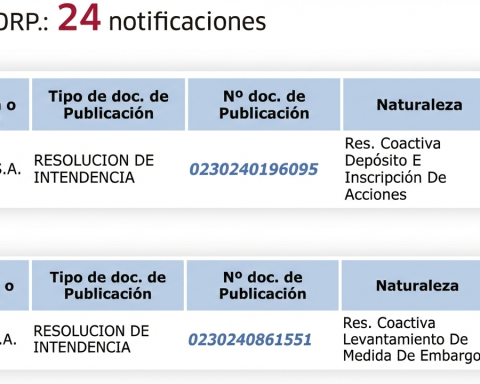The number of workers with a formal contract who do not need to pay Personal Income Tax (IRPF) is expected to double in 2026, when the income tax bracket should be in force. exemption for those earning up to R$5,000as promised by the federal government in the “income reform” that should be processed in the National Congress next year.
The projection of taxpayers benefiting is from the Inter-Union Department of Statistics and Socioeconomic Studies (Dieese), provided to Agência Brasil. According to the entity, currently 10 million people are exempt from paying the tax. With the proposal, the exemption range should increase from the current R$2,824 (two minimum wages) to R$5,000, thus adding another 10 million people exempt from taxation.
The tax exemption will benefit lower-income workers and will also reach middle-class employees in other income brackets. “Among those with a monthly income between R$5,000 and R$7,500, there is also the positive impact of reducing tariffs, and this group represents around 16 million people”, calculates Mariel Angeli Lopes, technical supervisor from the Dieese regional office in the Federal District.
Economic growth
The Dieese data differ from the figures from the National Association of Tax Auditors of the Federal Revenue of Brazil, Unafisco. In a study carried out in September, the association estimated a greater reach: 30.6 million taxpayers would be exempt from paying IRPF if the taxation table were updated with full correction for inflation. In this calculation, the limit value for exemption from tax collection would be slightly higher than that proposed later by the government, R$5,084.04.
Unafisco is working on updating the data for December, but expects an inflow of R$50 billion into workers’ pockets with the release of income tax, increased consumption and growth in the Gross Domestic Product (GDP). According to the association’s president, Mauro Silva, 65% of Brazilian GDP comes from family consumption.
For him, the IRPF exemption will end up boosting the economy. “This income bracket has very little savings. He ends up consuming everything he earns. These people will renovate their homes and use more services. There will be a spillover to families with lower purchasing power as well.”
Off target
Economist João Leme, public accounts analyst at Tendências Consultoria, agrees that there will be an acceleration in economic activity. “Higher demand ends up putting pressure on supply and causes activity to pivot,” he explains. The expert, however, fears that the increase in consumption could put pressure on inflation.
“Some houses [de avaliação econômica] are already looking at the IPCA here [índice de Preço ao Consumidor Amplo] of 2024 going beyond the target, and for next year we can also see [a inflação] moving away from the center of the target established by the National Monetary Committee”, highlights the economist. For him, an eventual inflationary cycle could force “monetary tightening” and an increase in interest rates.
Another fear of João Leme is the impact of the IRPF exemption on public accounts, estimated at between R$35 and R$45 billion. For him, these projections led “to the deterioration of expectations, precisely because the government was talking about a plan to cut expenses of around R$70 billion divided into R$30 billion for 2025 and R$40 billion for 2026.”
Regarding the effects on public accounts, the government argues that the compensation of resources not taxed with exemption will be compensated with the increase in the effective contribution for those earning more than R$50 thousand per month (R$600 thousand per year).
“The new measure will not have a fiscal impact, that is, it will not increase government spending. Because those who have an income of more than R$50,000 per month will pay a little more”, explained Finance Minister Fernando Haddad, in a speech on national radio and television on November 27th.
Distributional effect
In his speech, Haddad highlighted that the income reform, combined with the tax reform, “will result in a large part of the Brazilian people paying neither income tax nor taxes on products in the basic basket, including meat. Correcting a large part of the unacceptable tax injustice, which deepened social inequality in our country.”
Economist Ricardo Gonçalves, from the Center for Management of Strategic Studies (CGEE), and a PhD candidate in Economics at Unicamp, highlights that the exemption from IRPF without compensation would have a concentrating effect, because even people with higher incomes would have a discount of R$5 thousand when paying tax.
“Every time the exemption range increases by itself, without changing the progressive income tax table, it generates a concentrating effect. My concern is that, beyond the 27.5% [hoje alíquota máxima) tivesse outras taxas mais elevadas para as pessoas mais ricas, para ter essa compensação.”
A economista Clara Brenk, professora da UFMG e coordenadora da área de política fiscal do Centro de Pesquisa em Macroeconomia das Desigualdades da USP, concorda com a necessidade de combinar a isenção com o aumento da tributação sobre quem tem mais renda. “Isso faz com que a gente tenha uma redução da desigualdade”, pondera.
Brenk traçou os distintos perfis econômicos de quem se beneficia com a isenção e quem terá de pagar mais impostos. “A gente olhou aqui pelos dados da PNAD [Pesquisa Nacional de Amostra Domiciliar] and more than 70% of these people who earn up to R$5,000 are workers. Unlike when we look at those who earn more than R$50,000 per month, almost half are business owners.”
Economist João Leme agrees that the income reform will have a “distributive effect”. “Tax progressivity is not only something that is good because it is morally correct, but also because it is a determination of the Constitution itself. Having a progressive taxation structure actually means that we can have greater social well-being. People who can afford more pay more.”
The president of Unafisco, Mauro Silva, points out that a very small number of people have an income above R$50,000 and will have to pay more IRPF. “If I consider those who today declare more than R$50,000 as taxable income, then I don’t think that’s even 100,000 people,” he estimates.















